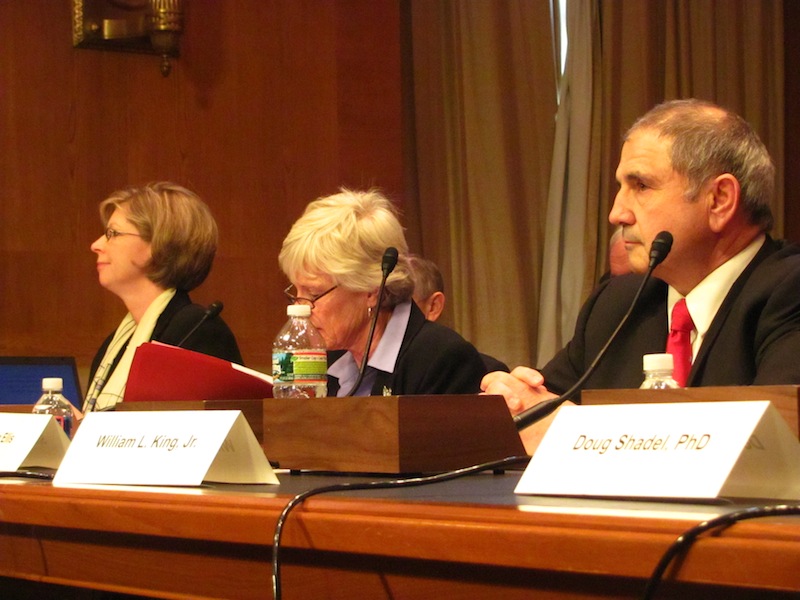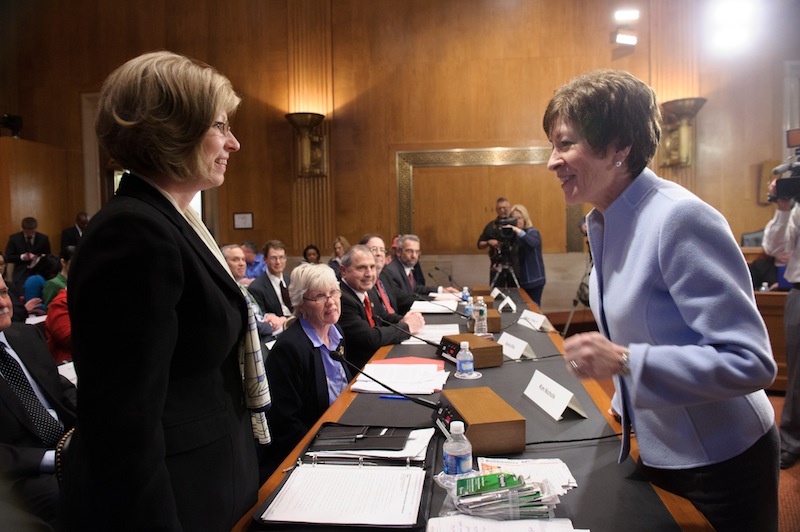WASHINGTON – Senators called on U.S. and Jamaican officials Wednesday to step up their efforts to crack down on phone scammers who are stealing millions of dollars from senior citizens in Maine and throughout the country.
“We want to see somebody indicted and then we want to see them extradited to the U.S.,” Sen. Bill Nelson, D-Fla., told federal law enforcement officials and others at a hearing on the so-called Jamaican lottery scam. “That will have a chilling effect on a number of these people who think they are bullet-proof.”
Sen. Susan Collins, R-Maine, and Nelson organized Wednesday’s hearing before the Senate Special Committee on Aging in an attempt to call more attention to a particularly relentless type of phone-based scams that is costing senior citizens as much as $300 million a year, according to one estimate.
Nearly 200 cases have been identified in Maine – with an average loss of $60,000 to $70,000 – and law enforcement officials say the actual number is significantly higher.
Tens of thousands of senior citizens are suspected of falling prey to the scams nationwide, first wooed by the promise of money and then dragged along through nonstop threats and intimidation.
“That’s what makes this Jamaican scam different than other scams we have investigated,” said Doug Shadel, a fraud expert with AARP. “It is just the relentlessness of it, calling hundreds of times.”
The scam begins with a call – often from Jamaica’s 876 area code – informing the victim that they have won a lottery, a car or some other sweepstakes.
With repeated friendly calls from people with official-sounding titles, the scammers convince the victim to pay an initial fee to cover taxes or other costs.
They then extort more money from the victim, first by befriending them and then eventually with dozens of harassing and threatening calls per day.
To illustrate the financial toll of the scam, Collins played a recording of a conversation between an elderly Maine resident and a scammer who suggested she could go to jail if she didn’t pay all of the taxes on her supposed $2.5 million jackpot.
Fighting back tears, the York County resident tells the man with a thick Jamaican accent that she was up at 4 a.m., crying.
“I didn’t know what to do because I don’t have no money,” the unnamed woman says. “The bills are coming and I got my tax bill I don’t have any oil. I’m freezing here. It’s getting cold now. I can’t warm up my house.”
Later in the hearing, Collins told an official with U.S. Immigration and Customs Enforcement that “we have got to go after these people,” no matter how complex the problem.
“We have to send a stronger signal,” Collins said. “And I think the best way to do that, to deter others, is to put some people in prison. And Jamaica has got to do its part as well.”
Vance Callender, operations chief for U.S. Immigration and Customs Enforcement, said just two people have been prosecuted on fraud charges in Jamaica, but police have arrested people involved in the scam for other crimes, such as guns or drugs.
Despite the slow progress, Callender said, he believes the foundation is being laid to more aggressively pursue the criminals as Jamaica updates its laws.
“Jamaica is a country that we can extradite out of,” Callender said.
Others who testified Wednesday – including two people from Maine – said they have received little or no help from federal authorities.
“What I have found at the federal level is a culture of indifference,” said Chief Deputy William King of the York County Sheriff’s Office, who has led the fight against the lottery scam in Maine.
As an example, King recounted how just two months ago he got a real name and address for one of the perpetrators in Jamaica. He contacted the Jamaican Operations Linked to Telemarketing task force, led by Immigration and Customs Enforcement, but to no avail. A television news crew easily tracked down the scam artist in Jamaica.
“What we need to do is put our egos aside and work on these cases,” King said, who suggested a joint task force similar to the one that handles terrorism cases. “Federal, local and county agencies can all work together and we can get these cases solved.”
The committee also heard testimony from Kim Nichols of Hermon, whose father lost $85,000 to the con artists.
Her father, a retired professional pilot living in New Hampshire, was smart and good with his money, but he was lured by the prospect of using his winnings to help others.
“They are arrogant and they clearly know they can continue to operate without consequence,” Nichols said.
Representatives from the U.S. Postal Inspection Service and the money wire-transfer service Western Union told lawmakers about their efforts to inform the public and strengthen protections against fraud.
Shawn Tiller, deputy chief inspector for the U.S. Postal Inspection Service, said arrests can go only so far against scams so large and complex.
“Education is clearly the first line of defense,” Tiller said.
Kevin Miller can be contacted at 317-6256 or at:
kmiller@mainetoday.com
On Twitter: @KevinMillerDC
Send questions/comments to the editors.






Comments are no longer available on this story